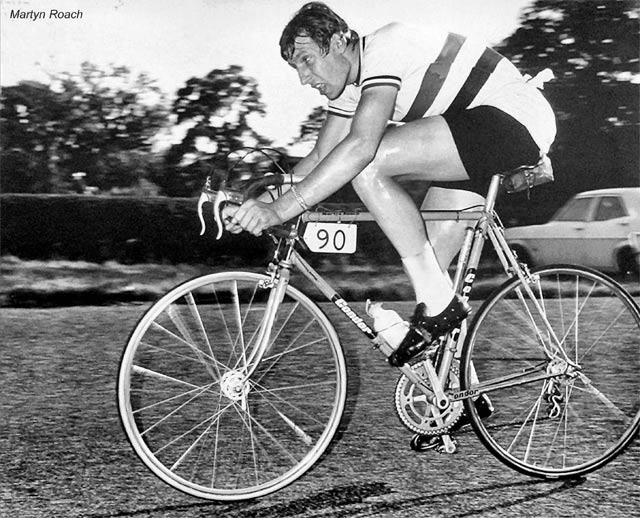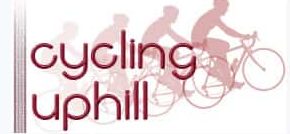One of the attractions of sport and time trials in particular is the amateur ethos. Doing sport – not for name and fame – but for your own individual sense of satisfaction. Seeing sport not as ‘win at all costs’ but an opportunity for self-transcendence. How far can you push your mind, body and spirit, using your own efforts?

The amateur / Corinthian ideal is not about money. But, the attitude with which you do sport. In the 1950s, sport tied itself in knots – banning people from racing who accepted so much as an inner tube from a bicycle company. This made a joke of amateur sport and, inevitably over time, the line between pro and amateur became blurred. I don’t think anyone mourns the loss of strict rules about not accepting money. But, whether pro or amateur, whether well paid or competing for just honour – an athlete always faces the choice of how to compete and with what attitude.
The referee is always right
A bit of a detour into football…. I like watching football highlights on Match of the Day. But, my joy is significantly reduced because 50% of football highlights involve people complaining about refereeing decisions or managers complaining about x,y, z. The best way to play sport is to accept the decision, the result. People say it’s right to complain about the referee because a lot of money is riding on the result, but money is the problem. Who wants £200,000 a week, if you can’t maintain the sporting ideal? It seems even the most successful managers and football clubs can appear to be miserable most of the time. Even winning is no guarantee of joy.
An inspiring story about the amateur ideal
In the 1912 Olympic Games, General Patton competed in the modern pentathlon. He claimed he had a bulls eye shot not recorded because it passed through a hole made by his .38 revolver. Nevertheless, his response to this disappointment was indicative of the spirit of the Olympics at the time.
“The high spirit of sportsmanship and generosity manifested throughout speaks volumes for the character of the officers of the present day. There was not a single incident of a protest or any unsportsmanlike quibbling or fighting for points which I regret to say marred some of the other civilian competitions at the Olympic Games. Each man did his best and took what fortune sent them like a true soldier, and at the end we all felt more like good friends and comrades than rivals in a severe competition, yet this spirit of friendship in no manner detracted from the zeal with which all strove for success.”
That is an interesting quote and helps to summarise the best of the Corinthian ideal of sport. Each man striving for success, but within a spirit of friendship and sportsman like attitude.
Victory and defeat
The amateur ideal involves striving to do the very best. It is human and understandable to want to win. But, at the same time, winning isn’t the only way to derive satisfaction from sport. To give everything and miss out on victory can be quite a satisfying experience, as long as you are willing to see that as a possibility.
We can all sympathise with the honesty of Emil Zatopek.
“It was my first competition in Olympic Games and I was surprised to come to Olympic stadium and to read the most important things about the Games was: ‘Not to win but to take part’. What — not to win? Ah, but I wish to win!”
Yet, it was also Zatopek who offered the memorable quote.
“Great is the victory, but the friendship is all the greater.”
It was also Zatopek who slipped into the luggage of his friend Ron Clarke, one of his precious Olympic gold medals. Simply, Zatopek felt that Ron Clarke ‘deserved’ an Olympic gold medal so secretly and surreptitiously he gave his great friend and rival a gold medal. Zatopek strove to win, he was an amazing athlete, but also he had a magnanimous heart – to give away a gold medal to a great rival!
Doping
Needless to say, once you accept that sport has some intrinsic value in honest competition, doping is 100% out of the question. One simple rule for sport is to treat your competitors how you would like to be treated yourself; and not to do anything, you wouldn’t want everyone to know about.
If you learn to value sport for the effort involved and the personal quest of self-transcendence and don’t pin everything on success, you would never want to dope. A great lesson of sport is that you can gain satisfaction from whatever the outer result is. Once you learn to get joy from finishing fourth / fifth / last, how could you value or be happy from a dishonest 1st place?
When people value the amateur ideal, when people realise the greatest value of sport is from honest and friendly competition, people will not want to dope. The problem occurs when people think the result justifies any means. But, people have to be educated that the doper can never have a moment’s peace or real satisfaction. Because in the back of his mind, he knows it is dishonest, and it doesn’t matter whatever you achieve – it will not give satisfaction.
Sport is great, but it could be greater. It is one thing to strive to do better physically. But, whoever you are – there is always be someone better than you. The amateur ideal / the Corinthian ideal enables people to get more from sport.
The Corinthian Endeavour
I wrote this piece several weeks ago, but I hadn’t got round to posting it – it was sitting in a folder with several unfinished articles.
I was jolted into finishing it because of the publicity about Paul Jones’ upcoming book – The Corinthian Endeavour – the story of the National Hill Climb. Should be worth checking out.

A good article Tejvan,I also think those that give up their free time in order to volunteer and help out at amateur events be it cycling TT’s, Hill Climbs or kids football deserve to be applauded for their efforts.